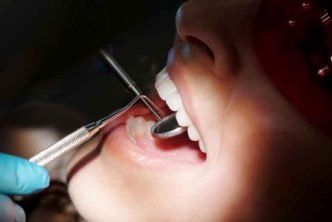Aging is a natural process but a cruel one. It sneaks up on you and brings many diseases and conditions in its wake. Whether it’s a weak ankle, a blurry newspaper print, or forgetting where you kept your glasses, age shows in sneaky ways. Speaking of aging, dementia is one of the most prevalent medical conditions that can be witnessed.
Dementia is nothing but a collection of symptoms linked to a deterioration in memory, speech, and other cognitive abilities that is severe enough to affect everyday functioning. As we get older, our chances of falling prey to dementia grow. In fact, after the age of 60, the prevalence of dementia increases every five years, according to the World Health Organization (WHO). One in three persons has dementia by the time they reach the age of 85. Dementia is more of a condition rather than a disease, and one needs a lot of changes and adjustments to make in their life
Causes of Dementia
- Genetics: Genetics can play a role in the development of dementia, particularly in Alzheimer’s disease. In fact, there is evidence that suggests genetics may contribute to the onset of some forms of dementia. Research has shown that certain genetic mutations can increase a person’s risk of developing Alzheimer’s disease. The APOE gene, for example, is known to be associated with the disease. There are three different versions, or alleles, of this gene: APOE2, APOE3, and APOE4. People who inherit two copies of the APOE4 allele have a significantly higher risk of developing Alzheimer’s disease than people who inherit one or two copies of the APOE3 or APOE2 alleles.
- Age: Because dementia is more common as people get older, aging is one of the primary risk factors for dementia. Dementia can affect people of any age, although the elderly are much more vulnerable to getting it. According to the Alzheimer’s Association, nearly half of those over 85 and about 3% of adults aged 65 to 74 have dementia. This is thought to be the outcome of alterations in the brain brought on by aging, such as a decrease in brain cell density and changes in how information is processed.
- Lifestyle factors: There has been research linking certain lifestyle choices to a higher risk of dementia. It has been demonstrated that exercise protects against dementia. According to studies, regular physical activity may cut the incidence of dementia by up to 30%. An elevated risk of dementia has been associated with diets that are low in fruits, veggies, and whole grains and heavy in sugar and saturated fat. Although smoking can harm blood vessels and restrict blood flow to the brain, it has been demonstrated that smoking increases the risk of dementia. Due to the harm that excessive alcohol use can do to brain cells, it can also raise the chance of dementia. If you have been maintaining a substandard lifestyle, this is a note to fix that right away.
- Medical conditions: Dementia risk might be increased by specific medical disorders. High blood pressure can harm the brain’s blood arteries, resulting in less blood flow and a higher risk of dementia. Dementia is more likely to occur in diabetes patients because high blood sugar levels might harm the brain’s blood vessels. Dementia risk can also be increased by cardiovascular disease, which can harm brain blood arteries and cause heart disease, stroke, and dementia. A major brain injury may also raise the possibility that an individual may eventually develop dementia.
- Neurodegenerative disorders: Dementia can be brought on by several neurological conditions. In around 60 to 70 percent of all cases of dementia, Alzheimer’s disease ranks as the most prevalent cause. The buildup of abnormal proteins in the brain, which could also harm brain cells and obstruct communication between them, is one of the defining characteristics of Lewy body dementia, and it may result in hallucinations, adjustments to sleep schedules, and variations in cognitive performance.
Dementia can truly impact the quality of life and it is crucial to take action to lower our dementia risk as we age. This can involve leading a healthy lifestyle, stimulating the mind with puzzles, reading, socializing, and controlling long-term health issues like diabetes and high blood pressure. Dementia and aging are two interrelated phenomena that are growing more prominent. Dementia has no known cure, but there are ways to lower the chance of getting it and treat its symptoms, which can help individuals who already have it live better lives. Equipping yourself with relevant tools and resources can still help you live a fulfilling life. If you are a loved one who has a high risk of dementia, seek help to help you navigate the journey.





